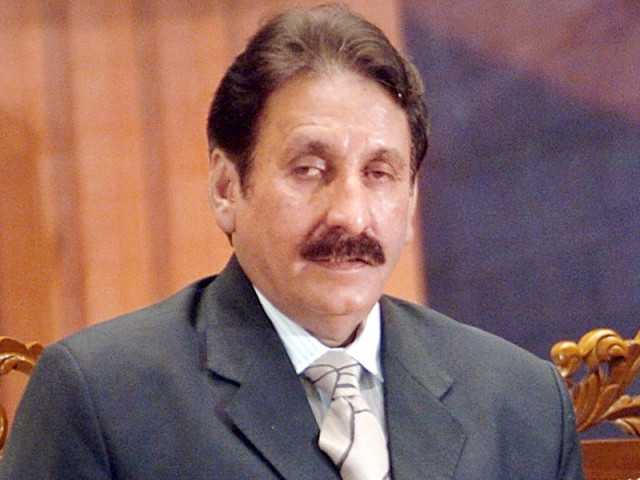SC shut off route to martial law: ex-CJP
Hamid Khan expresses grief over declining graph of judiciary

Former chief justice Iftikhar Muhammad Chaudhry on Thursday said that the Supreme Court (SC) closed the way of martial law forever through its decisions.
Addressing the launch ceremony of Hamid Khan’s book ‘Comparative Constitutional Review’, he said that General (retd) Pervez Musharraf's trial was held and a sentence was handed to him.
Chaudhry said that it is not easy to write a book on a dry and difficult subject like the constitution.
Judiciary has always been subject to the constitution and has implemented it, but Khan blamed the judiciary for the lack of rule of law in his book, he added.
The judiciary in Pakistan has thrown out all non-judicial motives, and it had determined that it would not approve of a dictator to run the country, he further said.
Khan’s book should be read not only by students but also by judges to understand the constitution, he declared.
The former CJP said that the apex court has declared that the right to a fair trial is the most important part of our constitution.
Fair trial was mentioned in Justice Qazi Faez Isa's case, he pointed out, adding that top court’s decisions of July 20 and July 31, 2009, are very important.
“These two decisions are historic,” he remarked.
“The Supreme Court closed the way for unconstitutional decisions through the decision of the Sindh High Court Bar Case,” he added.
He highlighted that the judiciary decided that no judge would justify an unconstitutional act. At the time of passing the 18th Amendment, the parliament incorporated the contents of the SC decision into the constitution, he added.
The apex court, through its decision, buried the theory of necessity forever, resulting in the trial and then conviction of former military ruler Musharraf, he said.
Chaudhary said that Khan has compared the laws of Pakistan, America, Germany and Britain.
More than 500 pages of this book cannot be reviewed immediately, he said, adding that it is estimated that Rana Waqar and Khan worked very hard in writing this book.
Khan always played his role in the rule of law and constitution in the country, he said.
He lauded Muneer Malik, Aitzaz Ahsan and Khan for fighting for the rule of law in the country.
Khan is a symbol of the independence of the judiciary, he said, adding that no country can develop without the rule of law.
The former top judge said that various courts and laws have been reviewed in the book.
Supreme Court Bar Association (SCBA) President Abid Zuberi said that this book was the need of the hour, and everyone should read it.
“Hamid Khan himself is a library, we take guidance from him. If great lawyers write books, they should be advertised so that they are read,” he declared. “This book should also be a part of the curriculum.”
He said that the culture of research is disappearing in Pakistan as compared to other countries.
“I wish that we all read this book and take advantage of it,” he said.
Khan said during the ceremony that it is a bitter truth that what happened after Iftikhar Chaudhry is not worth it.
“I am writing the second edition on the history of judiciary,” he said.
“Unfortunately, even after the verdict of the Sindh High Court, the graph of the judiciary fell,” he added.
“The bench of Justice Jawad Khawaja asked the government to file a case against Pervez Musharraf. Later, the judges changed their behavior and prolonged the case. In 2019, the Supreme Court again instructed Pervez Musharraf to decide the case. Pervez Musharraf sat outside and filed the case in the Lahore High Court, on which, the bench created a new legal innovation and abolished the special court,” he further said.
The lawyer said that their petition against Musharraf has not been heard yet.
Perhaps the petition against Musharraf is being waited for to become ineffective, he added.
Judges used to make decisions, but now they sit on cases, he further said.
After the retirement of Chaudhry, instead of growing, the judiciary has gone into reverse gear, he highlighted.
However, Khan said that there is still hope from the judiciary.
“Up until the time of Nasirul Mulk, appointments to the Supreme Court were made on the basis of seniority,” he said. “The appointment of junior judges in the Supreme Court has jammed the system of high court judges.”



















COMMENTS
Comments are moderated and generally will be posted if they are on-topic and not abusive.
For more information, please see our Comments FAQ